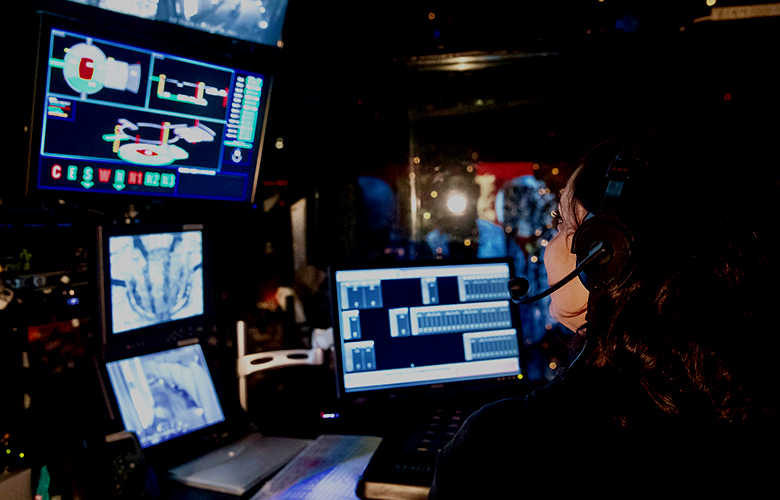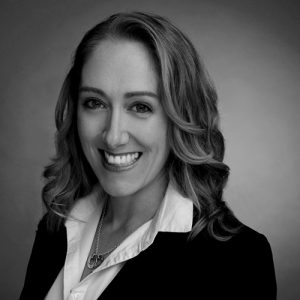
Originally from the Highlands of Scotland and since 2008, I’ve been based out of Montreal Canada in the Headquarters of Cirque Du Soleil. I am the Senior Advisor of Automation for Show Support in the Touring Shows Division. Day to day, it can be quite the mash up of ‘to dos’. I assist the tours in their budget planning for the equipment on the road; knowing and understanding the applications in which they are being used. The environmental factors they face in a big top and the number of transfers an arena show does can have a significant effect on the life expectancy of equipment; so we have to plan accordingly. Planning ahead can be from 12 months to five years; which in itself is a challenge that can make your head spin.
Standards and Legislation are another big ticket item that I spend time on; lots of reading and research on the various territories that Cirque Du Soleil visits with all our tours, working out what standards are applicable ahead of our visits in order to ensure we have all the required documentation to perform.
Liaising with suppliers to establish global support contracts and acting as the conduit between the tours for troubleshooting, site visits and equipment updates. I work closely with the Automation teams on each of our 11 tours (9 on the road and 2 in production) to follow equipment and staff development, performances, concerns, equipment movement (for customs and logistical challenges) and the necessary logging and documentation tasks to ensure the equipment complies with health and safety requirements.
Each year I aim to visit each of our tours on the road; the week I spend with each of the teams is very beneficial for both myself and the tour staff. I’m able to have some quality face to face time with individuals, listen to and observe their realities, and work together in how to approach solutions or improvements that work for both the individual as well as the company as a whole. For shows in production, we touch base regularly to follow the evolution of the kit and how it will be used. It is preferred that we don’t inhibit the creation sandbox, but we have to ensure that what goes out on the road is as broadly compliant with all our regular territories we visit and can be supported for at least the following ten years.
In recent years, the team I work with in Montreal has spent time liaising with educational establishments to learn what they teach, as well as, share with them what we are looking for in our future technicians.
In conjunction with this, my colleagues and I work with our Talent Department in candidate selection and recruitment fairs.
I spend time working with my counterpart in the Resident Shows Division based in Las Vegas. Together we look at the broader picture of automation protocols and procedures; from a creation phase through to a show closing. It’s a large undertaking and we like to encourage feedback and participation from the end users.
Everything mentioned so far are the ideal days; then we have the days when things go off plan. I’ll drop tools on any other non-critical work and assist in any troubleshooting, coordination that requires immediate action to avoid a show cancellation or to ensure that the audiences are getting as close to the whole show experience as possible. Sometimes we have to temporarily work around problem pieces of equipment when solutions will take longer to implement; this usually leads to a project phase which entails research, planning, budgeting, coordination, and if all goes well; delivery and documentation. These projects can take a whole range of time frames; from weeks to months.
I first encountered automation when I joined a cruise ship installation as a stage crew member. I was intrigued and in awe of what could be achieved; computerized scenic choreography! There was a small part of performer flying on the ships, but for the main part, it was scenic. There was something quite engrossing about scene changes that occur at different points in a musical score that interact with dancers on a beat, and that completes the move with the final note of music. The devil is in the details!
When I first left high school I had pursued an education in mechanical offshore engineering; this was my false start on my career path. I then discovered the technical side of entertainment and have been on this path ever since. Graduating from the Royal Scottish Academy of Music & Drama I went into the industry aiming for stage management. It had been my original plan to use the entry stage crew position on ships as a stepping stone to becoming a stage manager (and of course travel the world!); but from my first ship contract and interaction with an automation system, my mind was changed! It then became a massive learning curve that is still in motion. I did come from a more technical background, but an automation system made up of electro-mechanical components was not in my ‘toolbox’. I’ve learned and continue to learn as the technology and final applications constantly evolve.
I still find it strange that going from Offshore Engineering seems to have gone in a spiral motion to Entertainment Automation, not full circle. But there are still days when the discussion of oil viscosity brings me back to my Monday afternoon class of ‘Heat Transfer and Fluid Mechanics’ and I can’t help but have an inside chuckle at how things have come to be.
The best part of my job is when I do my annual visits to each of our tours. The first evening of the week I always sit in the house with the audience. It’s important for me to experience our show with people who are watching with fresh eyes and newly found awe; kids are the best with their “Wow” and wide eyes! Certain shows have goosebump inducing moments that remind you what you are part of.
The worst part is when I’m on the phone with a tour experiencing problems and I don’t have the magic solution for their problem. When these times come around, which isn’t too often thankfully, my heart sinks for the tour staff who are up to their eyes in trying to make a show happen. They have pressure from all sides to get things up and running again. Most automation folks are at their best when applying pressure on themselves given a difficult situation. However, the silver lining of these more difficult days is that people can come out at the other end with a greater knowledge and understanding of their kit.
(Ever the optimist!)
Cirque touring shows really place a high demand on our staff. Obviously the primary task is show operation and city transfers, but in order to do this you need to be able to maintain and inspect. As our shows are constantly evolving, there is a need for programming skills and, as per any automation system, there is the need for knowledge to perform troubleshooting. It’s incredibly difficult to have all these skills in a single person, so balancing a team is another quest for the holy grail.
I encourage folks that are interested, to get all that they can from electro-mechanical courses, to source as much as they can online, learn about PLCs, pick every brain along their career, look into hydraulics and pneumatics, and the list could go on!
Keep in mind that you need to develop much of this knowledge during the course of your career and not before it! Don’t be afraid to start as crew, but if you’re interested in learning, ask questions, show up early, learn how to operate and learn programming.
I’ve always said the highest qualification required to work in the technical industry of entertainment is common sense. Everything else can be taught and learned. Being humble, not afraid of long hours and hard work are assets, and admitting to not knowing is a quality strength in itself, something that many egos would benefit from.
Oooh tough question! I’ve had different people during my career that inspire me depending on my circumstance at the time. My first introduction to automation was from Dave Wright who encouraged and pushed me to keep going with learning the trade. Sian Farley who I worked with at the National Theatre in London during 2004 was the first female I met with show experience in automation was positive, realistic, encouraging and incredibly personable. Kevin Ford was my Head of Automation when I first joined Cirque on the creation of Corteo and I am so thankful for his patience and guidance.
Since migrating to the show support side of the industry there have been different influences and inspirations. Friends and colleagues, Naomi Adler and Fred Caron are clear, concise, motivated and my go-to sounding board. Sometimes when the job gets tough, workload piles up and demands are coming from all directions, Naomi and Fred can be my voices of reason that remind me that it’s not always the quantity of work achieved but the quality of it. Each of these people can be commended for enduring my company and I know I have the red-headed Highlander streak in me that can fire up upon occasion. I’ve been able to take traits from so many people that the practice to develop myself will forever be a work in progress.
The next generation coming into the industry are pretty damn inspiring.
They are introduced to technologies at such a young age now and are able to use it in day-to-day applications. Their drive and motivation is in itself contagious. I now have the responsibility of helping them focus their talents and hope that they too will pass it along.
Dani Bellar Pilukas: Principal Show Programmer For Walt Disney Imagineering
Touring With Cirque Du Soleil: Tanya Burka


Anna Robb is Co-Founder and Managing Director for TheatreArtLife. Anna is an experienced Producer/Production Stage Manager. Her 20-year work history spans Asia Pacific, the Americas, Africa, the Middle East and Europe. She has worked for companies such as Cirque du Soleil, Franco Dragone Entertainment Group, Christie Digital Systems and The Sydney Opera House. Anna was an integral part of the research and development, training and formation, creation and operation of the 250 million dollar aquatic show, The House of Dancing Water in Macau. She also maintained the daily operations of this complex show as the head of Stage Management for 7 years. Anna has been employed on over 70 shows in the areas of concerts, arena events, corporate events, trade shows, musical theatre, plays, dance, circus, outdoor festivals and mega shows. Anna holds a honours degree in Design for Theatre and Television and is passionate about the evolution of the industry.
Read Full Profile© 2021 TheatreArtLife. All rights reserved.

Thank you so much for reading, but you have now reached your free article limit for this month.
Our contributors are currently writing more articles for you to enjoy.
To keep reading, all you have to do is become a subscriber and then you can read unlimited articles anytime.
Your investment will help us continue to ignite connections across the globe in live entertainment and build this community for industry professionals.